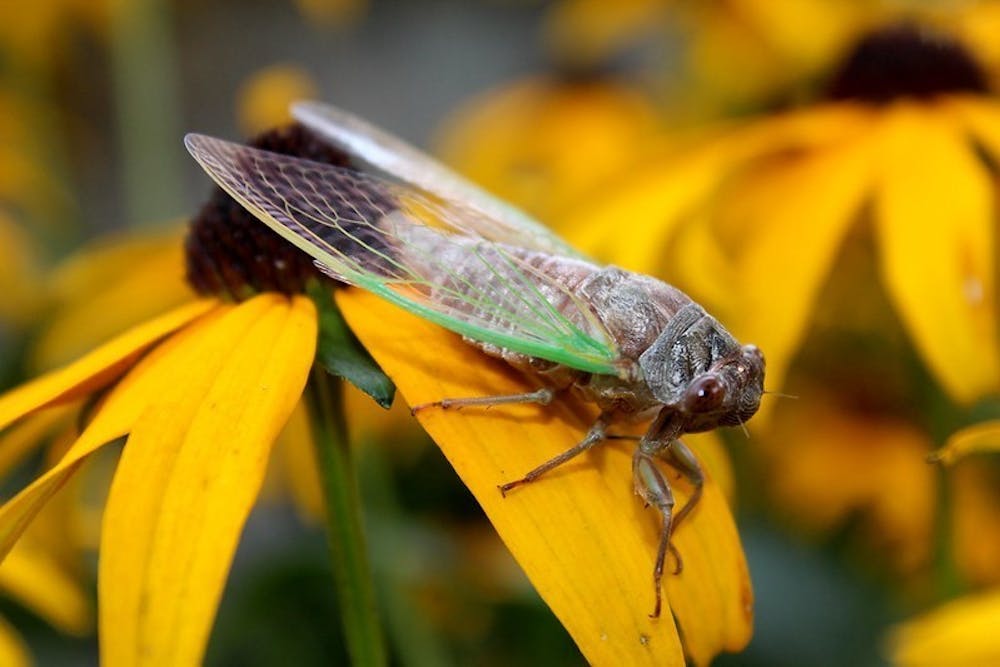Experts believe that the flooding on June 18 did not significantly impact the Brood X cicada population.
Brood X cicadas spend 17 years underground and about six weeks above ground in the final phase of their life cycle. The cicadas that were going to emerge would have already done so, Keith Clay, Distinguished Professor of Biology Emeritus at IU, said.
Clay said that female cicadas were mostly done mating and laying eggs by the time the flood came.
The cicada holes may have even contributed to some flood damage because they allow water to absorb into the soil quickly, Clay said.
“There can be hundreds of holes per square meter,” Clay said. “The ground looks like swiss cheese.”
Clay said he doesn’t think the flooding will affect the next generation of Brood X cicadas either. Female cicadas usually lay their eggs in tree branches, which are high enough to avoid floodwater.
The next generation of cicadas won’t hatch for about another month, but it makes it easier for the young cicadas, or nymphs, to penetrate if the ground is moist. Nymphs must feed on underground tree roots to survive, Megan Abraham, Indiana state entomologist, said.
If the ground is too saturated when the eggs hatch, it may negatively affect the next cicada population size, Abraham said.
Some cicadas could still be heard the day after the storm, so there likely won’t be an effect on future generations, Roger Hangarter, IU professor of biology, said in an email.
Hangarter said some branches containing cicada eggs might have been knocked off, but there are plenty of eggs in branches closer to the trees that survived the storm.
“The bottom line is that disturbance of ecosystems due to human activities such as development for buildings, parking lots, along with overuse of pesticides are by far the biggest threat to their population,” Hangarter said.
Richard Phillips, IU professor of biology, studies the effects of the Brood X cicadas on soil. When cicadas emerge from the ground, they secrete a chemical that acts like glue and keeps the holes in place. The holes that cicadas emerge from allow greenhouse gases to escape, which helps provide the soil with oxygen, according to The Scientist.
Phillips said that soil in Bloomington holds water well because it has a lot of clay, making the soil quickly saturated. Some of the water from the flood has covered up the holes from the cicadas.
Phillips said the cicada holes might have contributed to flooding in basements, but they could have helped mitigate the flooding by absorbing water so it doesn’t flood the streets.






